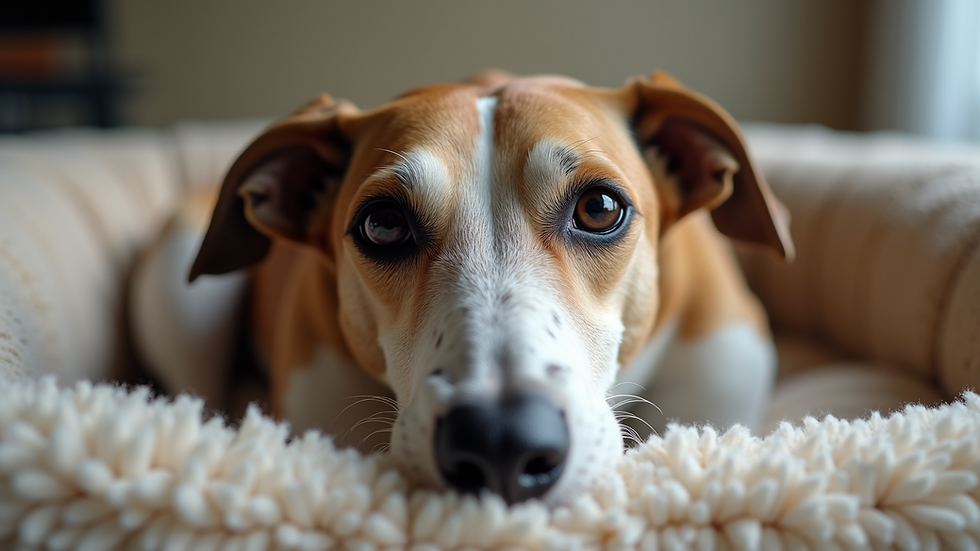Homes4Hounds:
- homes4hounds6
- Sep 29, 2025
- 4 min read
The Importance of Supporting Greyhound Rehoming
Retired racing greyhounds often face challenges when transitioning from the track to a home environment. Many have spent years in kennels and require time to adjust to domestic life. Supporting greyhound rehoming is crucial because it:
Raises awareness about the unique needs and characteristics of greyhounds, helping potential adopters make informed decisions.
Builds a community of advocates and volunteers who contribute time, resources, and love to these dogs.
By supporting greyhound rehoming, you help create a network that rehabilitates, and rehomes these dogs, giving them a new lease on life.

How You Can Support Greyhound Rehoming
There are many ways to get involved and support greyhound rehoming efforts, whether you are able to adopt, foster, volunteer, or donate. Here are some practical steps:
Adopt a Retired Greyhound
Adopting a greyhound is one of the most impactful ways to support rehoming. These dogs are known for their gentle nature, low-maintenance grooming, and calm demeanour indoors. Adoption agencies often provide guidance on how to care for your new pet, including tips on diet, exercise, and acclimatisation.
Become a Foster Carer
Fostering allows greyhounds to experience home life while waiting for permanent adoption. Foster carers provide essential socialisation and help identify any behavioural or health issues. This role is flexible and rewarding, offering a direct way to improve a dog's quality of life.
Volunteer Your Time
Many organisations need volunteers for kennel work, fundraising events, transport, and administrative support. Volunteering helps reduce operational costs and increases the capacity to rescue more dogs.
Donate Funds or Supplies
Financial contributions help cover veterinary care, food, and shelter costs. Donations of supplies such as bedding, toys, and leashes are also valuable. Regular donations or one-time gifts can make a significant difference.
Spread Awareness
Sharing information about greyhound adoption on social media or within your community helps reach potential adopters and supporters. Educating others about the benefits of adopting retired racers can change perceptions and increase adoption rates.
By engaging in these activities, you contribute to a sustainable support system for greyhounds in need.

How Much Do Retired Greyhounds Cost?
Understanding the financial aspect of adopting a retired greyhound is important for prospective owners. Adoption fees vary depending on the organisation but generally cover essential veterinary care and support services. Here’s what you can expect:
Adoption Fees: our fee is £250 and includes collar, lead, muzzle, food, bowls and a coat. All dogs are neutered, up to date with vaccinations, microchipped and have had a health check.
Initial Supplies: You will need a bed or duvet, toys, grooming kit and more food.
Ongoing Costs: Greyhounds require regular veterinary care, quality food, grooming, and occasional treats or toys. Monthly expenses can range from £30 to £60 depending on your location and the dog’s needs.
Many adoption agencies provide post-adoption support, including advice on training and health care, which adds value beyond the initial cost. It’s important to consider these factors to ensure you can provide a stable and loving home.

What to Expect When Adopting a Retired Greyhound
Adopting a retired greyhound is a rewarding experience, but it comes with unique considerations. Here are some key points to keep in mind:
Temperament: Greyhounds are typically calm, affectionate, and gentle. They enjoy lounging and are often described as "couch potatoes." However, they also need regular exercise to stay healthy.
Adjustment Period: Many retired racers need time to adapt to home life. They may be shy or nervous initially but usually become confident with patience and love.
Exercise Needs: Despite their racing background, greyhounds are sprinters rather than endurance runners. Short daily walks and occasional playtime are sufficient.
Diet: Greyhounds have sensitive digestive systems. A high-quality diet tailored to their needs is essential.
Health: Regular vet check-ups are important. Greyhounds have thin skin and low body fat, so they may require protection from extreme weather.
Adoption agencies often provide detailed guidance and support to help new owners navigate these aspects successfully.
The Role of Homes4Hounds in Greyhound Rehoming
One organisation making a significant impact in this field is homes4hounds. They focus on retired racing greyhounds and finding them loving homes. Their approach includes:
Comprehensive Health Checks: Ensuring each dog is healthy and ready for adoption.
Behavioural Assessment: Identifying any special needs or training requirements.
Foster Programmes: Providing temporary homes to help dogs transition.
Community Engagement: Educating the public about greyhound adoption benefits.
Support for Adopters: Offering advice and resources post-adoption.
By supporting organisations like Homes4Hounds, you help create a better future for retired greyhounds and promote responsible pet ownership.
Supporting greyhound rehoming is a compassionate and impactful way to make a difference in the lives of these remarkable dogs. Whether through adoption, fostering, volunteering, or donating, your involvement helps ensure that retired racers find the loving homes they deserve. With organisations like Homes4Hounds leading the way, the future looks brighter for greyhounds everywhere.




Comments